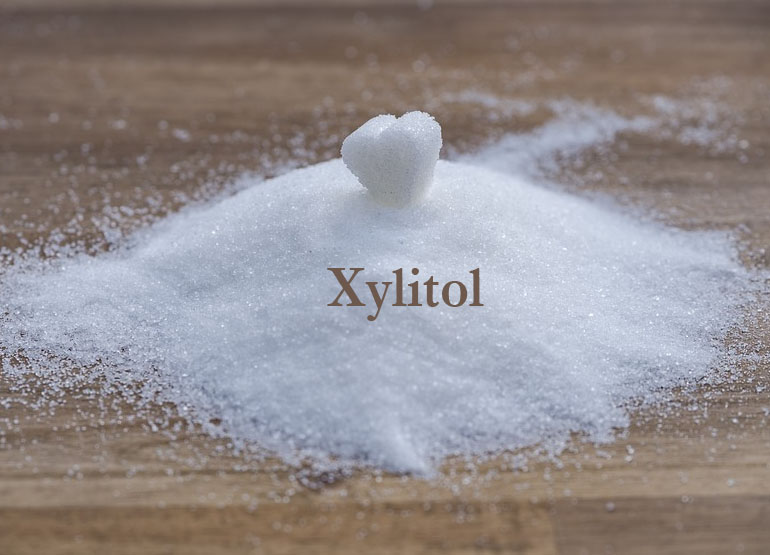Health Pages
What You Should Know About Xylitol
About Xylitol
Xylitol is a five-carbon sugar alcohol, obtained commercially from wood sugar (xylose) that is used as a sugar substitute. Xylitol is also naturally occurring sweetener found in the fibers of many fruits and vegetables, including various berries, corn husks, oats, mushrooms, and it can be extracted from corn fibre, birch, raspberries, plums, and corn. Xylitol is roughly as sweet as sucrose but with only two-thirds the food energy, and it is commonly used as a sugar substitute in pharmaceutical products and many foods, especially chewing gum, because its use prevents tooth decay.
Xylitol tastes, looks, and feels like sugar, has virtually no aftertaste, and it is available in many forms. If you use xylitol in crystalline form, it can successfully replace sugar in cooking, baking or as a sweetener for beverages. One teaspoon of xylitol contains 9.6 calories, as compared to one teaspoon of sugar, which has 15 calories. It contains zero net effective carbohydrates, whereas sugar contains 4 grams per teaspoon.
Xylitol has virtually no aftertaste, and is advertised as "safe for diabetics and individuals with hyperglycemia". This is because sugar-alcohols are absorbed more slowly and have less impact on a person's blood sugar than regular sugars.
Xylitol is not a drug, has no known toxic levels and it was approved by the US Food and Drug Administration (FDA) in 1963. The only known discomfort that some sensitive people may notice initially is mild diarrhea or slight cramping, and that usually occurs when its taken in large amounts. Since xylitol is a natural substance and our body makes about 10 grams every day, as well as the enzymes needed to break it down, any discomfort usually disappears within a few days as the body's enzymatic activity adjusts to a higher intake.
Xylitol is a low-calorie alternative to table sugar that heals and repairs, builds immunity, protects against chronic degenerative disease and has anti-ageing benefits. Xylitol is considered a five-carbon sugar, which means it is an antimicrobial, preventing the growth of bacteria. While sugar is acid forming, xylitol is alkaline enhancing. All other forms of sugar, including sorbitol, another popular alternative sweetener, are six-carbon sugars which feed dangerous bacteria and fungi.
Did You Know?
"Xylitol can be applied nasally through a saline solution containing xylitol. Nasal Xylitol works great in preventing the growth of bacteria."



